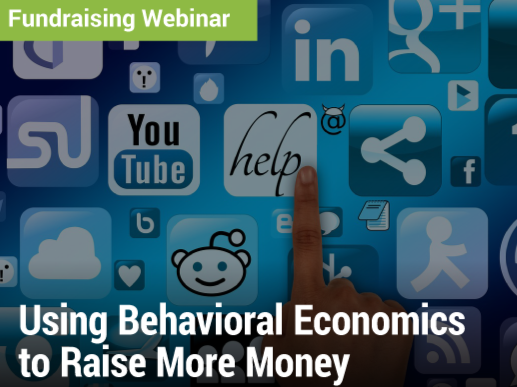Using Behavioral Economics to Raise More Money
Using Behavioral Economics to Raise More Money
Couldn't load pickup availability
People make decisions about giving money in irrational, but surprisingly predictable, ways. Behavioral economics examines these patterns of human behavior as they relate to choices we make about whether to spend, save, or donate money.
By understanding the principles of behavioral economics and applying it to your fundraising, you can better understand your donors’ behavior and improve your fundraising results.
Join us and our expert guests:
- Bernard Ross, the Management Centre
- Thomas Kurmann, Doctors Without Borders
They’ll share insights ― gleaned from research in behavioral economics, neuroscience, and psychology ― into how and why people give. You’ll see real-world examples from Unicef, the Alzheimer’s Association, U.S. Olympics, and Doctors Without Borders that demonstrate how following the principles of behavioral economics can help boost revenue from digital ads, donation pages, online campaigns, and more.
Don’t miss this chance to learn from two international experts how to motivate your donors to do more for your cause.
WHAT YOU WILL LEARN:
- How neuroscience and psychology influence people’s giving in unexpected ways
- How to apply behavioral economics techniques to fundraising
- Subtle tweaks to design, messaging, or presentation that can motivate donors to give

BERNARD ROSS
Director
The Management Centre

THOMAS KURMANN
Director of Development
Doctors Without Borders
With Support From:

Originally Aired: September 12, 2019
This webinar is worth one CFRE credit.
Share


